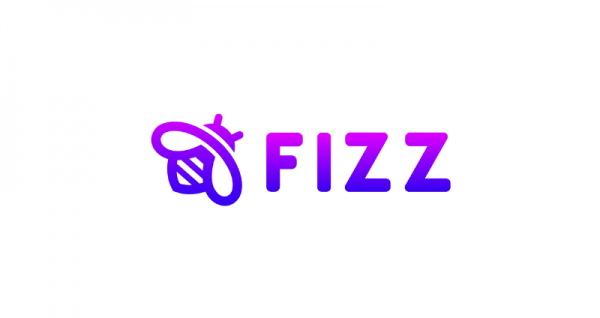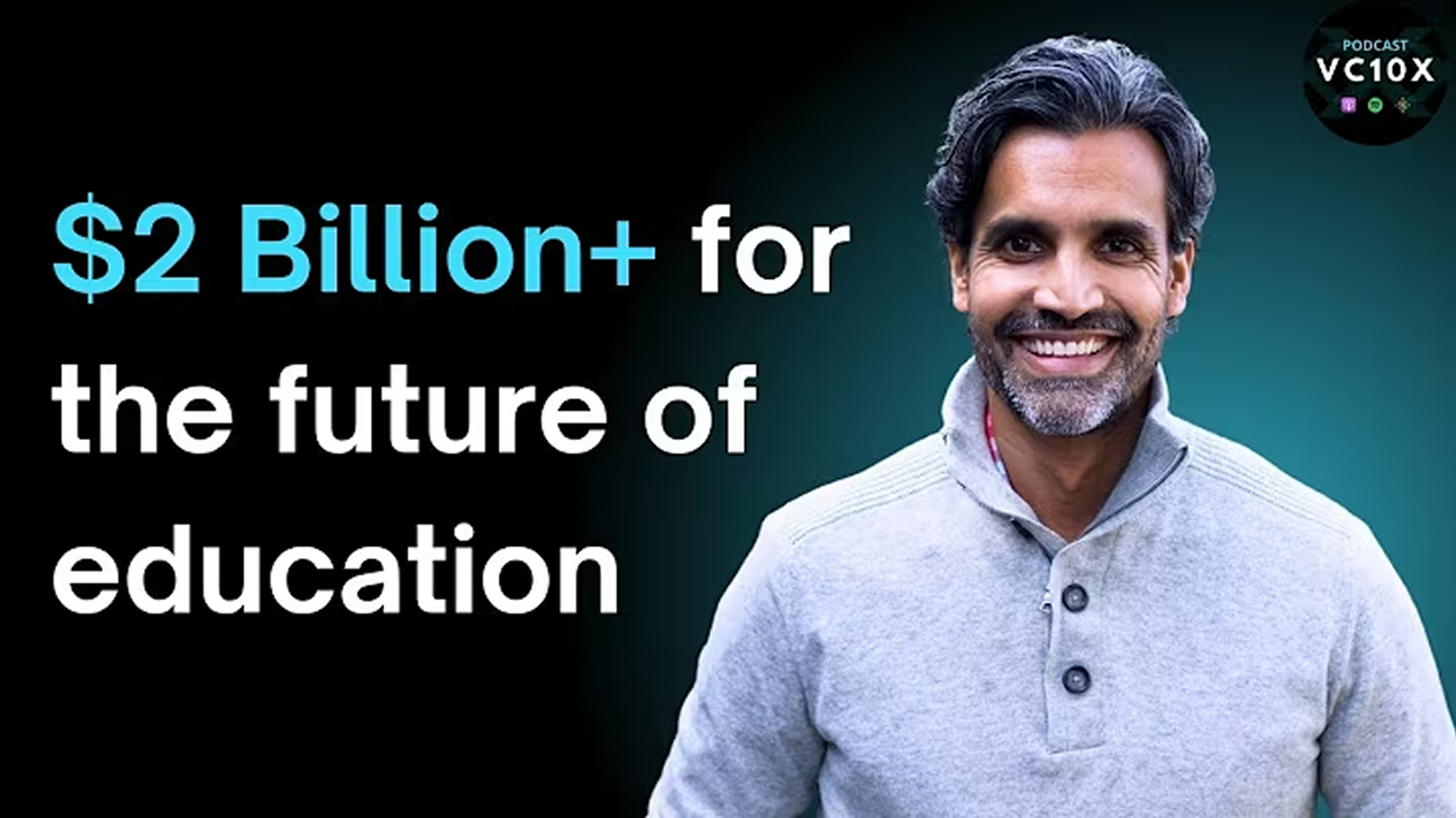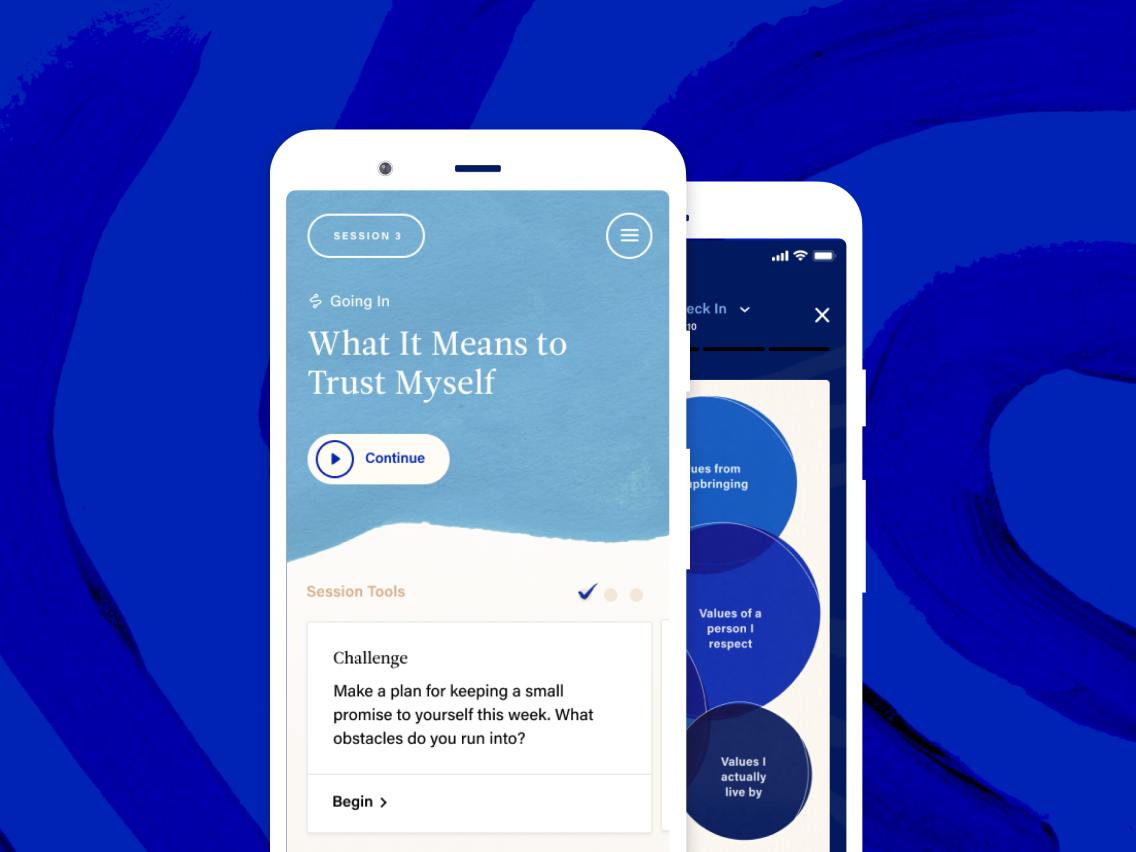This Stanford social network could be the next Facebook on college campuses - but it has a Gen-Z twist
This Stanford social network could be the next Facebook on college campuses - but it has a Gen-Z twist
A new social media platform is being buzzed about on college campuses. Fizz, formerly called Buzz, is already being used by thousands of students who feel it keeps them more closely connected to campus life. But Fizz, which sounds spectacularly engaging, takes one big risk: it’s entirely anonymous.
The app was created by two Stanford students, Ashton Cofer and Teddy Solomon, who dropped out as the network’s reach continued to grow. “We originally created Buzz as a platform for our friends to have fun and to help students connect to their campus because while we were at home during the COVID-19 pandemic, we all felt so disconnected from campus,” Cofer told The Stanford Daily. “To see how Buzz, now Fizz, has evolved over time to become an inclusive and uplifting platform for everyone and keep positive through content moderation has been rewarding for us.”
Fizz started to help students, who were learning remotely at the time, feel connected. But now, the anonymous forum has become a place for sharing everything—like campus life, events, trends, and even crushes. Users join using their Stanford email address and contribute anonymously through posting and commenting on others’ posts. Content gets a “karma” rating based on upvotes and downvotes, and users get “fizzfluence.”
Fizz certainly seems like a fun and effervescent community that’s bubbling up. Its reach has expanded well past Stanford, with access on at least 80 campuses. By the end of the year, the creators hope it will be in 250 schools.
If you’re thinking it sounds a bit like another social network that started on a college campus, you’re not wrong. Like Facebook, Fizz’s first couple of years has not been without controversy. There has already been a name change and a rebranding to go with it, privacy breaches, and concerns about the anonymity of the app. Some have also compared the app to YikYak, another anonymous social media platform that emerged on college campuses, but failed after four years when it became overrun with cyberbullying and hate speech before reemerging in 2022 with what the website called “community guardrails.”
Regardless of concerns about the safety of Fizz, the community still seems to be flourishing, and recently, the company has seen a huge boost in funding. Owl Ventures and NEA, who were early investors, just jointly added $25 million in Series B funding to the platform. Overall, the platform has earned $41.5 million in total funding.
Still, worries persist about how safe an anonymous platform can really be. The founders say anonymity is the point. “Right when you strip away that name, you’re able to be your authentic self. You’re able to actually express yourself, and it removes the social anxiety that comes with everything,” Solomon told Rice’s student newspaper. “Growing up in such a technological age, we’re naturally and justifiably anxious and very socially anxious, and [Fizz] allows us to have enough authentic space where your name’s not attached.”
A new social media platform is being buzzed about on college campuses. Fizz, formerly called Buzz, is already being used by thousands of students who feel it keeps them more closely connected to campus life. But Fizz, which sounds spectacularly engaging, takes one big risk: it’s entirely anonymous.
The app was created by two Stanford students, Ashton Cofer and Teddy Solomon, who dropped out as the network’s reach continued to grow. “We originally created Buzz as a platform for our friends to have fun and to help students connect to their campus because while we were at home during the COVID-19 pandemic, we all felt so disconnected from campus,” Cofer told The Stanford Daily. “To see how Buzz, now Fizz, has evolved over time to become an inclusive and uplifting platform for everyone and keep positive through content moderation has been rewarding for us.”
Fizz started to help students, who were learning remotely at the time, feel connected. But now, the anonymous forum has become a place for sharing everything—like campus life, events, trends, and even crushes. Users join using their Stanford email address and contribute anonymously through posting and commenting on others’ posts. Content gets a “karma” rating based on upvotes and downvotes, and users get “fizzfluence.”
Fizz certainly seems like a fun and effervescent community that’s bubbling up. Its reach has expanded well past Stanford, with access on at least 80 campuses. By the end of the year, the creators hope it will be in 250 schools.
If you’re thinking it sounds a bit like another social network that started on a college campus, you’re not wrong. Like Facebook, Fizz’s first couple of years has not been without controversy. There has already been a name change and a rebranding to go with it, privacy breaches, and concerns about the anonymity of the app. Some have also compared the app to YikYak, another anonymous social media platform that emerged on college campuses, but failed after four years when it became overrun with cyberbullying and hate speech before reemerging in 2022 with what the website called “community guardrails.”
Regardless of concerns about the safety of Fizz, the community still seems to be flourishing, and recently, the company has seen a huge boost in funding. Owl Ventures and NEA, who were early investors, just jointly added $25 million in Series B funding to the platform. Overall, the platform has earned $41.5 million in total funding.
Still, worries persist about how safe an anonymous platform can really be. The founders say anonymity is the point. “Right when you strip away that name, you’re able to be your authentic self. You’re able to actually express yourself, and it removes the social anxiety that comes with everything,” Solomon told Rice’s student newspaper. “Growing up in such a technological age, we’re naturally and justifiably anxious and very socially anxious, and [Fizz] allows us to have enough authentic space where your name’s not attached.”
A new social media platform is being buzzed about on college campuses. Fizz, formerly called Buzz, is already being used by thousands of students who feel it keeps them more closely connected to campus life. But Fizz, which sounds spectacularly engaging, takes one big risk: it’s entirely anonymous.
The app was created by two Stanford students, Ashton Cofer and Teddy Solomon, who dropped out as the network’s reach continued to grow. “We originally created Buzz as a platform for our friends to have fun and to help students connect to their campus because while we were at home during the COVID-19 pandemic, we all felt so disconnected from campus,” Cofer told The Stanford Daily. “To see how Buzz, now Fizz, has evolved over time to become an inclusive and uplifting platform for everyone and keep positive through content moderation has been rewarding for us.”
Fizz started to help students, who were learning remotely at the time, feel connected. But now, the anonymous forum has become a place for sharing everything—like campus life, events, trends, and even crushes. Users join using their Stanford email address and contribute anonymously through posting and commenting on others’ posts. Content gets a “karma” rating based on upvotes and downvotes, and users get “fizzfluence.”
Fizz certainly seems like a fun and effervescent community that’s bubbling up. Its reach has expanded well past Stanford, with access on at least 80 campuses. By the end of the year, the creators hope it will be in 250 schools.
If you’re thinking it sounds a bit like another social network that started on a college campus, you’re not wrong. Like Facebook, Fizz’s first couple of years has not been without controversy. There has already been a name change and a rebranding to go with it, privacy breaches, and concerns about the anonymity of the app. Some have also compared the app to YikYak, another anonymous social media platform that emerged on college campuses, but failed after four years when it became overrun with cyberbullying and hate speech before reemerging in 2022 with what the website called “community guardrails.”
Regardless of concerns about the safety of Fizz, the community still seems to be flourishing, and recently, the company has seen a huge boost in funding. Owl Ventures and NEA, who were early investors, just jointly added $25 million in Series B funding to the platform. Overall, the platform has earned $41.5 million in total funding.
Still, worries persist about how safe an anonymous platform can really be. The founders say anonymity is the point. “Right when you strip away that name, you’re able to be your authentic self. You’re able to actually express yourself, and it removes the social anxiety that comes with everything,” Solomon told Rice’s student newspaper. “Growing up in such a technological age, we’re naturally and justifiably anxious and very socially anxious, and [Fizz] allows us to have enough authentic space where your name’s not attached.”
A new social media platform is being buzzed about on college campuses. Fizz, formerly called Buzz, is already being used by thousands of students who feel it keeps them more closely connected to campus life. But Fizz, which sounds spectacularly engaging, takes one big risk: it’s entirely anonymous.
The app was created by two Stanford students, Ashton Cofer and Teddy Solomon, who dropped out as the network’s reach continued to grow. “We originally created Buzz as a platform for our friends to have fun and to help students connect to their campus because while we were at home during the COVID-19 pandemic, we all felt so disconnected from campus,” Cofer told The Stanford Daily. “To see how Buzz, now Fizz, has evolved over time to become an inclusive and uplifting platform for everyone and keep positive through content moderation has been rewarding for us.”
Fizz started to help students, who were learning remotely at the time, feel connected. But now, the anonymous forum has become a place for sharing everything—like campus life, events, trends, and even crushes. Users join using their Stanford email address and contribute anonymously through posting and commenting on others’ posts. Content gets a “karma” rating based on upvotes and downvotes, and users get “fizzfluence.”
Fizz certainly seems like a fun and effervescent community that’s bubbling up. Its reach has expanded well past Stanford, with access on at least 80 campuses. By the end of the year, the creators hope it will be in 250 schools.
If you’re thinking it sounds a bit like another social network that started on a college campus, you’re not wrong. Like Facebook, Fizz’s first couple of years has not been without controversy. There has already been a name change and a rebranding to go with it, privacy breaches, and concerns about the anonymity of the app. Some have also compared the app to YikYak, another anonymous social media platform that emerged on college campuses, but failed after four years when it became overrun with cyberbullying and hate speech before reemerging in 2022 with what the website called “community guardrails.”
Regardless of concerns about the safety of Fizz, the community still seems to be flourishing, and recently, the company has seen a huge boost in funding. Owl Ventures and NEA, who were early investors, just jointly added $25 million in Series B funding to the platform. Overall, the platform has earned $41.5 million in total funding.
Still, worries persist about how safe an anonymous platform can really be. The founders say anonymity is the point. “Right when you strip away that name, you’re able to be your authentic self. You’re able to actually express yourself, and it removes the social anxiety that comes with everything,” Solomon told Rice’s student newspaper. “Growing up in such a technological age, we’re naturally and justifiably anxious and very socially anxious, and [Fizz] allows us to have enough authentic space where your name’s not attached.”
A new social media platform is being buzzed about on college campuses. Fizz, formerly called Buzz, is already being used by thousands of students who feel it keeps them more closely connected to campus life. But Fizz, which sounds spectacularly engaging, takes one big risk: it’s entirely anonymous.
The app was created by two Stanford students, Ashton Cofer and Teddy Solomon, who dropped out as the network’s reach continued to grow. “We originally created Buzz as a platform for our friends to have fun and to help students connect to their campus because while we were at home during the COVID-19 pandemic, we all felt so disconnected from campus,” Cofer told The Stanford Daily. “To see how Buzz, now Fizz, has evolved over time to become an inclusive and uplifting platform for everyone and keep positive through content moderation has been rewarding for us.”
Fizz started to help students, who were learning remotely at the time, feel connected. But now, the anonymous forum has become a place for sharing everything—like campus life, events, trends, and even crushes. Users join using their Stanford email address and contribute anonymously through posting and commenting on others’ posts. Content gets a “karma” rating based on upvotes and downvotes, and users get “fizzfluence.”
Fizz certainly seems like a fun and effervescent community that’s bubbling up. Its reach has expanded well past Stanford, with access on at least 80 campuses. By the end of the year, the creators hope it will be in 250 schools.
If you’re thinking it sounds a bit like another social network that started on a college campus, you’re not wrong. Like Facebook, Fizz’s first couple of years has not been without controversy. There has already been a name change and a rebranding to go with it, privacy breaches, and concerns about the anonymity of the app. Some have also compared the app to YikYak, another anonymous social media platform that emerged on college campuses, but failed after four years when it became overrun with cyberbullying and hate speech before reemerging in 2022 with what the website called “community guardrails.”
Regardless of concerns about the safety of Fizz, the community still seems to be flourishing, and recently, the company has seen a huge boost in funding. Owl Ventures and NEA, who were early investors, just jointly added $25 million in Series B funding to the platform. Overall, the platform has earned $41.5 million in total funding.
Still, worries persist about how safe an anonymous platform can really be. The founders say anonymity is the point. “Right when you strip away that name, you’re able to be your authentic self. You’re able to actually express yourself, and it removes the social anxiety that comes with everything,” Solomon told Rice’s student newspaper. “Growing up in such a technological age, we’re naturally and justifiably anxious and very socially anxious, and [Fizz] allows us to have enough authentic space where your name’s not attached.”


.svg)








.jpg)




.png)





